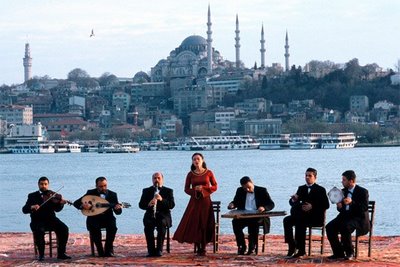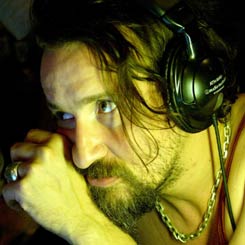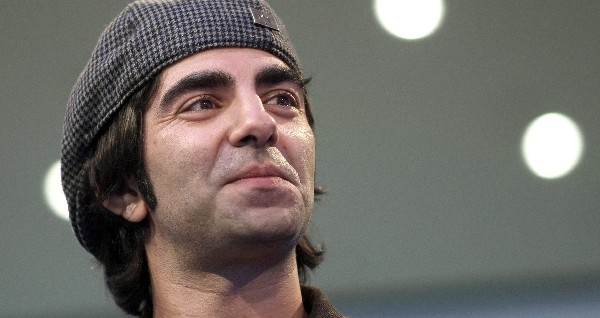When Istanbul Sings; We Hear Many Istanbuls
MUHAMMED NOUSHAD reviews Fatih Akin’s documentary Crossing the Bridge: The Sound of Istanbul.
Turkish music is irresistibly intoxicating. The more you listen to it, the more it binds you inside. Once you begin to indulge in its soothing pleasure, it engages you to endless entrapment. Here, modernity cohabits with tradition as in the historic city of Istanbul, where a symbiosis between the east and the west is sharply reflected. Faith Akin’s documentary Crossing the Bridge, the Sound of Istanbul attempts to register the sounds of the great city of imperial nostalgia and unmatched elegance. A brilliant and unforgettable tribute to Istanbul’s great musical traditions and to the broader music of Turkey, the documentary is narrated through the eyes of the director’s friend and colleague Alexander Hacke, a German bassist who first comes to the city to record songs for Akin’sHeads-On.
Crossing the Bridge opens with an alluring aerial long shot of blue waves of the Bosporus, and then the bridge connecting two shores of the city. The rhythmic beat in the soundtrack just takes you captive. The romance begins there; you are happily arrested till the end of the one and half hour documentary. The bridge symbolically reminds us of Turkey’s significance: connecting the cultures of both the east and the west. The idea of conflict is rejected. What you see is a synthesis, a symbiotic existence of each other. The narrative develops as Hacke attempts to record sounds of the city. He meets and interacts with interesting people from the Turkish music world – singers and musicians; he makes them sing and perform and he records them all.
A highly engaging, visually rich, musically mesmerizing film with great information and insight, Crossing the Bridge is a must-watch for anyone who loves cultures and peoples. The camera captures the beauty of the city in various ways: it follows Hacke’s casual walking through the streets, it registers the various moods of Bosporus, it takes to the houses, workplaces and performance stages of each of those wonderful musicians.
Crossing the Bridge features a long list of wonderful singers and musicians. Perhaps, Fatih Akin wanted to gift us his favourite songs and singers. Indeed a lovely and worthy gift. He, through Hacke, begins the musical odyssey with a psychedelic band Baba Zula, who performs on the Bosporus. They puritanically believe that surroundings can affect music. He takes us to wonderful bands and performances: Double Moon, Orient Expressions, Duman, Replicas, Ceza, Istanbul Style Breakers and more. The street musicians he interviews and records are equally amazing. The street shots that he montages during the street song sequences serve as a sociological guide to the downtowns of Istanbul. The precisely apt shots Fatih Akin juxtaposes with other Turkish films and original historic footages add new meanings and dimensions to what he has originally shot and edited. Fatih is at his filmmaker’s best here, arguably.
Istanbul’s legendary singers like Erkin Koray, Orhan Gencebay, Mercan Dede and Aynur possess almost inescapable intoxication. The public concert of Erkin tells a lot about his popularity and personality. His idiosyncratic charisma doesn’t begin and end with his voice. When he stands in front of a cheerful crowd and sings about loneliness, you feel the intensity of what he says. You don’t have to search for many reasons why a generation of musicians saw their “father” in him.
Another great musician Fatih portrays in the film is the irresistible Mercan Dede. His peculiar wind instrument neh definitely has a spiritually persuading magical charm. The sounds he produces through it perhaps belongs to a different realm. Its transcendental originality offers a heavenly solace. You are slowly awakened to something beyond the mortalities of this world through the simply complex mystical overtones of his music. His bizarre hairstyle; the way he rhythmically moves his tall body on the stage during the performance and the accompanying swirling darwish- everything adds to the unexplainable enchantment of the show.
Then comes the Kurdish singer Aynur. Her voice directly comes from her soul and she can make you cry with it; what she sings is equally personal and political. Aynur reminds us of the crazy times when Kurdish music was banned in Turkey whereas English, French and German music was allowed. With the ceaseless ups and downs her voice easily and poignantly takes, she sings of “the pain of God”. She sings along the sufferings in the heart of God, as her lyric says.. Fatih thereafter successfully manages to get actor musician Orhan Gencebay perform for the movie, though not in a public concert. In a hall where his pictures and paintings are hung on the wall, he sings an adorable love song.
Many others with great caliber line up to enlighten you. Selim Sesler is enviably versatile. Brenna MacCrimmon is sweet and pleasing not only in her character portrayed on screen, but in her melodious music, too. Selcuk explains the metaphorical meaning of attires the swirling darwishes wear. Nur Ceylan’s voice, with its heavily soulful pace, is inimitable.
Along with these great singers, the film also showcases a wide spectrum of interesting music instruments. The lyrics are penetrating and unforgettable. Though this is not a political documentary, the film’s political underpinnings are unequivocal and honest. It refuses the hyped idea of the clash between the east and the west. For the members of Baba Zula, it is nonsense. We are bound to agree with them as fusion and synthesis are the two themes the sequences focus on. While covering the political suppression the traditional Turkish and Kurdish music had to once suffer in the hands of the autocrats, the film asks the inevitable questions (how can you ban your native music?) and reveals the techniques the musicians adapted to survive by blending their traditions with outside ones. Human creativity can never be banned. The camera of the film moves in complete harmony with the film’s mood and theme. And the presence of narrator Alexander Hacke on the screen is more than a pleasure.
(Originally published on Interactive Webportal: http://www.islaminteractive.info/content/when-istanbul-sings-we-hear-many-istanbuls)


